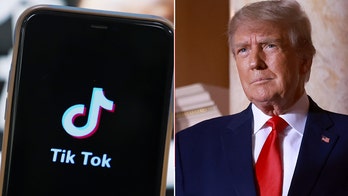Will South Carolina Voters Follow Their Hearts or Their Heads?
“I believe every American of every background has been endowed by their creator with the right to pursue happiness, and if that makes liberals unhappy, I’m going to continue to find ways to help poor people learn how to get a job, learn how to get a better job and learn some day to own the job.”
-- Former House Speaker Newt Gingrich at the Fox News/Wall Street Journal/South Carolina GOP debate answering a question from Juan Williams about the perceived insensitivity of saying black Americans should demand jobs, not food stamps.
MYRTLE BEACH, S.C. – Will South Carolina voters go with their hearts or their heads? That’s the choice that will decide whether the Republican nominating process is almost over or just getting started.
During Monday night’s Fox News/Wall Street Journal/South Carolina GOP debate, former House Speaker Newt Gingrich not only got a standing ovation but he was huge on Power Play’s preferred metric for measuring debate response: head nodding.
At one point or another, Gingrich had nearly every one of the more than 2,800 heads in the debate hall bobbing along as he talked about his programs or even when he was explaining how he decided to become a human flamethrower on the subject of private equity takeovers.
But, the target of the torching, former Massachusetts Gov. Mitt Romney, got lots of nods too. Turning in a performance that sometimes seemed a bit brittle, but was always creditable, Romney did what dudes with 25-point leads in national polls and 9-point edges in South Carolina are supposed to do: not screw up.
South Carolina has a perfect record at picking Republican nominees since they began their “First in the South” primary in 1980. The state’s batting average is no doubt helped by the fact that it goes third, after Iowa and New Hampshire have winnowed the field and revealed previously unseen weaknesses. Once the streak was established, voters interested in preserving perfection could jump behind inevitable-looking nominees.
But it’s the fact that South Carolina tends to better reflect the makeup of the national GOP of any early primary that really has made the streak possible. Lots of transplanted Yankees, a huge number of evangelical protestants, a core of go-to-hell libertarianism, plenty of Chamber of Commerce-style moderates, many military votes and a strong Southern drawl add up to a state that looks like the national GOP in miniature. When voters here do what comes naturally, it tends to synch up with what the rest of the Red Team wants to do.
The problem this year is that those two traits – savvy selection and instinctive picking – are at odds. Instinctive voters say Gingrich, a southerner with a messy record but who stirs their hearts as a conservative crusader, is the answer. But savvy selectors know that a well-funded more moderate frontrunner with a win in New Hampshire and at least a tie in Iowa is bound to be the nominee and the sensible choice is to get on the train.
What’s great about primary politics, here, though, is that quite often, the instinctive voters and the savvy selectors are the same people. They now have four days to settle this argument with themselves.
There is also a patriotic impulse at work here. Republicans are hugely concerned about beating President Obama, who they believe is turning America into Spain without the bullfights. As Obama runs as a tax-cutting, oil-drilling, government-shrinking, terrorist-killing moderate backed by a giant siege engine of negative campaigning, Republicans are feeling very nervous.
That nervousness helps Romney, who Republicans suppose is the kind of candidate independents will like. He may not be their beau ideal, but neither are any of the other contenders, so why not go with the guy who they believe can win.
But that nervousness could yet spark early buyer’s remorse in South Carolina. And there is Gingrich’s opportunity. Gingrich argues that Romney is too squishy to confront a president who will be moving to the middle in an election year after three years of governing from the left. Gingrich proposes a general election like a coroner’s inquest in which he is Quincy and Obama’s term is the cadaver.
Gingrich’s main problem, other than his own tendency to carom rather than campaign, has been that he is one of three Not Romneys and he has been unable to untangle himself from the other two.
Monday’s debate was a perfect example of the Not Romney tangle.
Former Pennsylvania Sen. Rick Santorum had a poor showing, struggling to defend his own deviations from conservative orthodoxy and trying to attack Romney for racially insensitive views for opposing restoring voting rights to felons. Texas Gov. Rick Perry, meanwhile, turned in his best debate performance yet. Other than seeming to suggest that terrorists were running NATO ally Turkey, Perry had no gaffes and seemed scrappy rather than swaggering when he swatted at his rivals.
If Santorum lost votes on Monday, Perry gained a few, and Gingrich needs every vote he can get.
But the biggest question for South Carolinians is whether they want to lift up a Not Romney at all. A victory or even a close, clear second-place finish by Gingrich in the Palmetto State would revive what looks like a race drawing to a rapid conclusion. Conversely, a win here by Romney could effectively end the nomination contest right here.
Their hearts are telling them to give Gingrich a sword and let him chase Romney through Florida and on to a Super Tuesday showdown. But their heads are telling them to preserve their perfect record and avoid a potentially damaging primary battle by conferring absolute inevitability on the frontrunner.
Chris Stirewalt is digital politics editor for Fox News, and his POWER PLAY column appears Monday-Friday on FoxNews.com.




